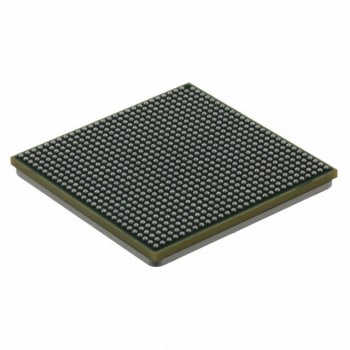Digital Signal Processor (DSP) plays a key role in modern communications, audio processing, image processing and other fields. As a digital signal processor engineer, you must have a wide range of abilities to successfully meet the growing technical challenges. Here are the key competencies a digital signal processor engineer should have and where to develop them.

1. Basic mathematics
Digital signal processing involves a large number of mathematical theories, including but not limited to Fourier transform, discrete time signal processing, filter design, etc. Engineers need to have a strong foundation in mathematics, understand these theories and be able to apply them to practical engineering.
2. Programming skills
Proficiency in programming languages is essential for digital signal processor engineers. Common DSP programming languages include C, C++, MATLAB, etc. By becoming proficient in these languages, engineers can efficiently implement algorithms, conduct simulations, and conduct actual DSP system development.
3. DSP hardware design
Digital signal processors are usually embedded in specific hardware systems, so DSP engineers need to understand the basic principles of hardware design, including circuit design, power management, clock distribution, etc. This helps engineers better understand how the DSP and hardware work together.
4. Familiar with digital signal processing algorithms
Familiarity with and understanding of common digital signal processing algorithms is one of the core competencies of DSP engineers. This includes filtering, transformation, time domain analysis, frequency domain analysis, etc. Engineers need to be able to select and optimize appropriate algorithms based on different application scenarios.
5. Real-time system design experience
Digital signal processing requires real-time performance in many applications, so DSP engineers need experience in real-time system design. It is critical to understand the fundamentals of real-time systems, scheduling algorithms, and hardware and software optimizations related to real-time performance.
6. Multi-domain knowledge
Digital signal processors are widely used in various fields, including communications, audio, image processing, etc. DSP engineers need to have interdisciplinary knowledge and understand the needs and challenges of different fields to better adapt to diverse work environments.
7. Signal processing hardware architecture
Understanding and being familiar with different DSP hardware architectures is an important skill for DSP engineers. Mastering the characteristics of common DSP chips and how to perform effective software and hardware co-design on these platforms will help improve engineers' ability to respond in actual projects.
8. Problem solving skills
Digital signal processing engineers need to have strong problem-solving skills. When faced with complex algorithm, hardware, or software problems, being able to quickly locate the problem, propose a solution, and implement adjustments is an indispensable skill for engineers.
9. Communication and collaboration skills
Digital signal processing often involves multi-disciplinary cooperation, and engineers need to work with multiple teams such as hardware engineers, algorithm engineers, and system engineers. Therefore, excellent communication and collaboration skills are critical to the overall effectiveness of the team.
10. Continuously learn and update
Digital signal processing technology is changing with each passing day, and DSP engineers need to maintain a continuous learning attitude and pay attention to the latest technological developments. Participating in industry conferences, training courses, and actively participating in academic research and community exchanges are the keys to continuously improving one's own level.
11. Comprehensive innovative thinking
The field of digital signal processing requires engineers to have innovative thinking and be able to come up with unique solutions to specific problems. Able to constantly think about how to improve existing algorithms, optimize system performance, and bring new technological breakthroughs to the field of digital signal processing.
To stand out in this rapidly developing field, digital signal processor engineers need to have a solid mathematical foundation, excellent programming skills, in-depth knowledge of DSP algorithms, and real-time system design experience.

